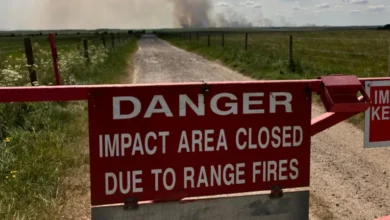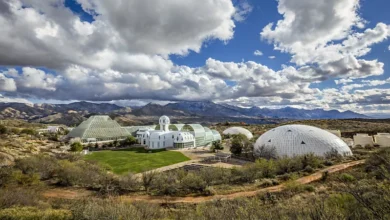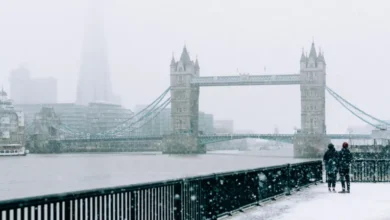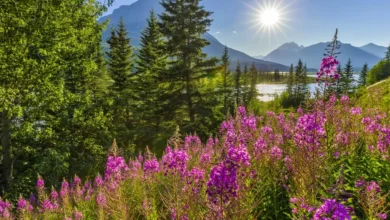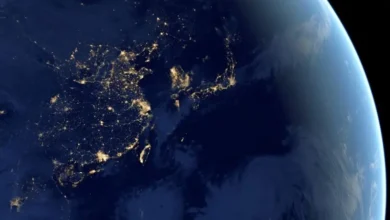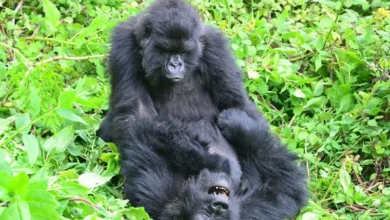Climate change: Six young people take 32 countries to court
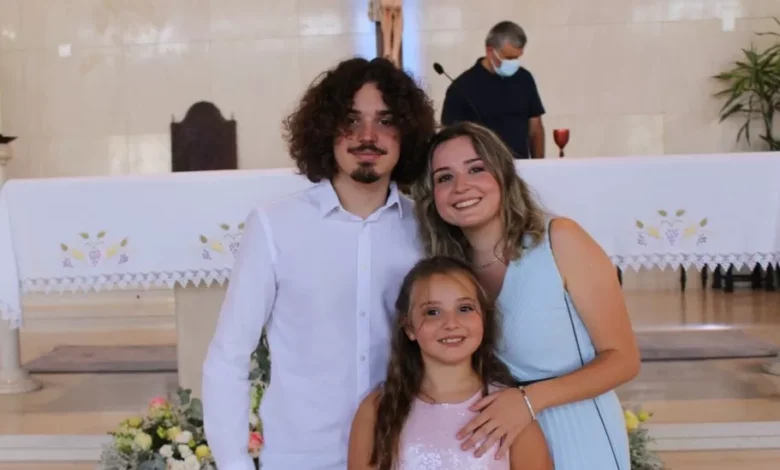
“What I felt was fear,” says Claudia Duarte Agostinho as she remembers the extreme heatwave and fires that ripped through Portugal in 2017 and killed more than 100 people. “The wildfires made me really anxious about what sort of future I would have.”
Claudia, 24, her brother Martim, 20, and her sister Mariana, 11, are among six young Portuguese people who have filed a lawsuit against 32 governments, including all EU member states, the UK, Norway, Russia, Switzerland and Turkey.
They accuse the countries of insufficient action over climate change and failing to reduce their greenhouse gas emissions enough to hit the Paris Agreement target of limiting global warming to 1.5C.
The case is the first of its kind to be filed at the European Court of Human Rights (ECHR) in Strasbourg. If it is successful, it could have legally-binding consequences for the governments involved. The first hearing in the case is being held on Wednesday.
Aged from 11 to 24, the six claimants argue that the forest fires that have occurred in Portugal each year since 2017 are a direct result of global warming.
They claim that their fundamental human rights – including the right to life, privacy, family life and to be free from discrimination – are being violated due to governments’ reluctance to fight climate change.
They say they have already been experiencing significant impacts, especially because of extreme temperatures in Portugal forcing them to spend time indoors and restricting their ability to sleep, concentrate or exercise. Some also suffer from eco-anxiety, allergies and respiratory conditions including asthma.
None of the young applicants is seeking financial compensation.
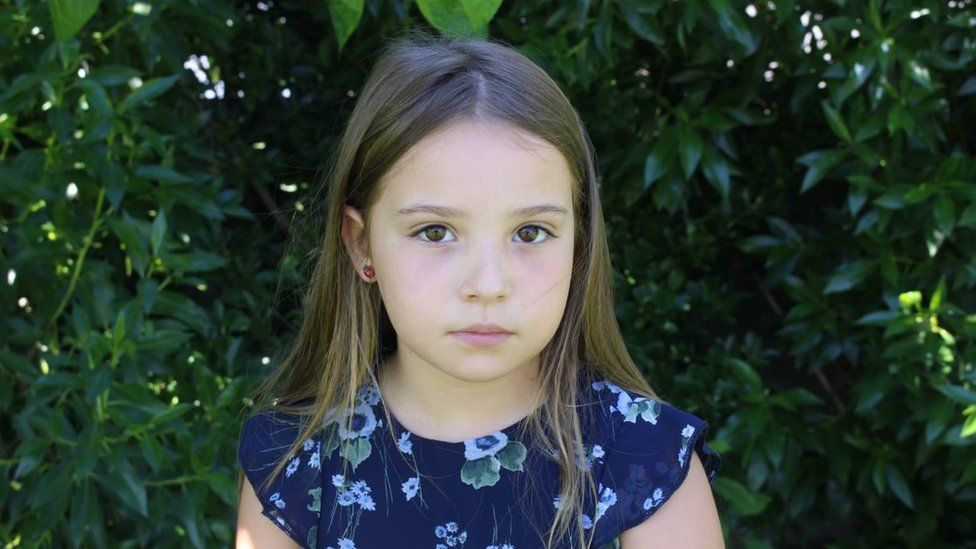
“I want a green world without pollution, I want to be healthy,” says 11-year-old Mariana. “I’m in this case because I’m really worried about my future. I’m afraid of what the place where we live will look like.”
Claudia says Mariana still gets scared when she hears helicopters flying above, which remind her of the firefighters back in 2017, when more than 50,000 acres (78 sq miles, 202 sq km) of forest were destroyed, and ashes from the wildfires were falling over their house miles away.
“I think it is really amazing for Mariana to get involved in this case, to have such a conscience at her age,” Claudia says.
“But it is also very worrying: Why does she need to think about these things? She should be playing with her friends and dancing to TikTok videos instead.”
Lawyers representing the six young claimants are expected to argue in court that the 32 governments’ current policies are putting the world on course for 3C of global warming by the end of the century.
“It’s catastrophic heating,” says Gearóid Ó Cuinn, director of Global Legal Action Network (GLAN) that is supporting the applicants.
“Without urgent action by the governments, the youth applicants involved in this case face unbearable heat extremes that’ll harm their health and their wellbeing. We know that the governments have it within their power to do much more to stop this, but they are choosing not to act,” he says.
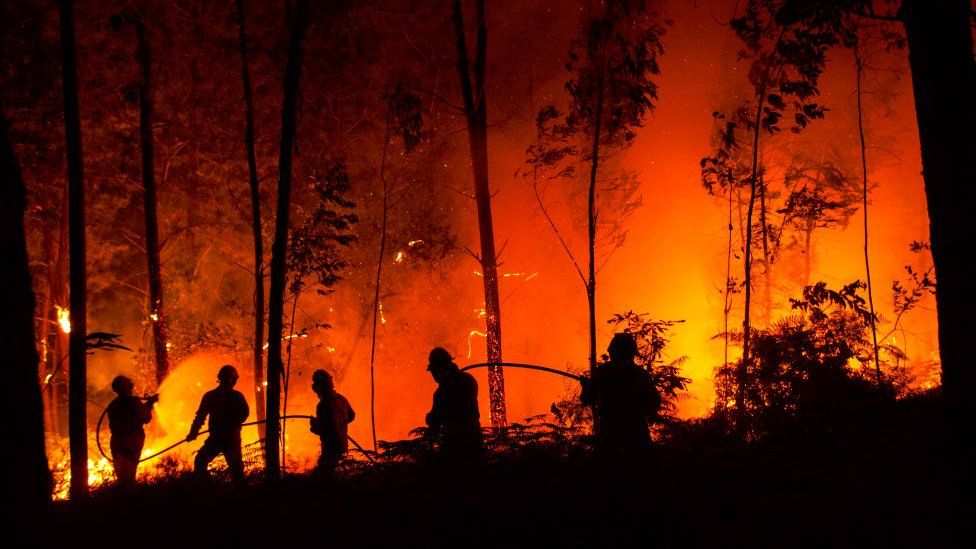
A 2021 Lancet study found that climate anxiety and dissatisfaction with government responses to climate change were widespread in children and young people across the world and impacted their daily functioning.
Based on a survey of 10,000 children and young people aged 16-25 in 10 countries across the world, the study suggested that a perceived failure by governments to respond to the climate crisis was associated with increased distress.
In separate and joint responses to the case, the governments argue that the claimants have not sufficiently established that they have suffered as a direct consequence of climate change or the Portuguese wildfires.
They claim there is no evidence to show climate change poses an immediate risk to human life or health, and also argue that climate policy is beyond the scope of the European Court of Human Rights jurisdiction.
“These six young people from Portugal, who are ordinary individuals concerned about their future, will be facing 32 legal teams, hundreds of lawyers representing governments whose inaction is already harming them,” says Gearóid Ó Cuinn.
“So this is a real David vs Goliath case that is seeking a structural change to put us on a much better track in terms of our future.”
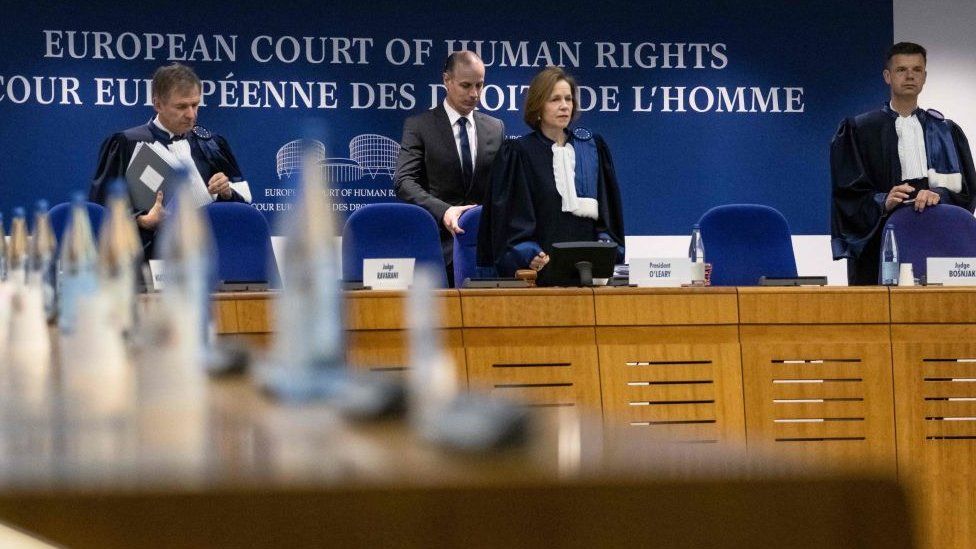
The Council of Europe’s Commissioner for Human Rights, Dunja Mijatovic, who intervened in the case as a third party, says this case has the potential to determine how states address climate issues and human rights.
“It is actually an alarm to member states, to international organisations, to all of us that have a particular chance to show that we do care, and that it’s not just words on paper. It’s not just ticking a box and saying we are for this or that resolution. It’s about changing our policies,” she said.
The ECHR ruling would legally bind the 32 governments at once to increase their climate actions by reducing greenhouse gas emissions and phasing out fossil fuels.
It would also influence domestic courts who have been seeking guidance from the ECHR on cases related to climate change. A verdict is expected in nine to 18 months.
Claudia says she often thinks about whether she should have children in the future, questioning the state of the world they would be living in. “But winning this case would mean there would finally be hope,” she says.
“It would mean that people are really listening to us and that they are as worried as we are and that the governments would really have to take measures to do something about it. It would be amazing for everything – for our anxiety, for our futures. A lot of things can follow after that.”

